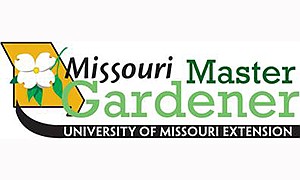Q. Someone told me there is this new insect pest of ash trees and that I should do something to prevent this pest. I have a really nice, large ash tree in my yard and will want to save it. What should I be doing?
The pest is Emerald Ash Borer, and it is spreading across the state. But it hasn't gotten to Cole County or any adjoining county yet. The Missouri Department of Conservation (MDC) keeps a map of current counties where the pest has been documented; it has occurred near Waynesville and Rolla to the south and the Kansas City and St. Louis metro areas to the east and west. This pest is VERY serious and has wiped ash trees out as it has spread. It started in Michigan more than a decade ago and is now in 26 states with the recent addition of Texas. It showed up in Missouri about five years ago. MDC gives the following advice to concerned landowners:
Until EAB has been confirmed in your county, or at least 15 miles from your home, no action is necessary. But, once it has been confirmed, then it is time to consider your options.
More information about which trees to save and which to remove, given the pest arrives, can be found at extension.missouri.edu/treepests/emeraldashborer.aspx.
For your tree, you would need to treat it with an insecticide every two years. For that, you'd need to hire an arborist, as trunk injection is the only way proven effective on large trees. For smaller trees, a soil-applied drench has been shown to be effective. The combination of the insecticide costs and the regular treatment needed will likely make many landowners consider removing ash trees and replacing them. No one should plant ash trees anymore, a sad fate considering they were considered a great replacement tree to American elm trees, which suffered decline from the devastating Dutch elm disease. When it shows up in the Jefferson City and Columbia area, we'll be getting the word out. In the meantime, relax and enjoy the tree.
Q. I've read that it needs to be warm when you are using the herbicide Roundup on grass and leaves. What about a fresh cut on something like bush honeysuckle or thick invasive vines? Can Roundup be used on the fresh cut woody branches/trunks in colder weather?
Yes, but as the weather turns very cold, I am not so sure the results would be that great. I would base my decision on:
Are there leaves still on the bush or tree?
Is the weather mostly above freezing?
If the answer to both is no, I'd probably wait for another time to try something. If the bush or tree recently dropped leaves but the weather is still mild then the sap is still flowing from above ground to the roots. But once it has turned wicked cold, like in the past week or two, then I'd lose confidence.
If it is something you just need to do anyway, then I'd do it, but pick a week where the weather is warmer - maybe wait until this cold spat abates. If you do, just make sure to use the high concentration of the product, which is around 45 percent glyphosate. Follow the label instructions which are to apply undiluted directly to the fresh cut.
Q. When will the next Master Gardener class be offered?
We'll be offering a spring afternoon class in conjunction with Callaway County in New Bloomfield. It will start March 7 and run Tuesdays and Thursdays finishing on April 13. Class time will be 12:30-3:30 p.m., and the cost will be $135. Contact our office if you are interested.

